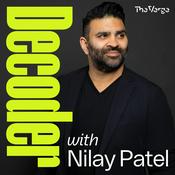121 episodes

Nick Caldwell: The Mill Gym - Preparing the Next Generation of Special Operators
27/11/2025 | 1h 19 mins.
Nick has over 12 years of military experience, including 4 years as an Australian Commando and 6 years as an SAS operator. His operational service included deployments throughout the Middle East and Southeast Asia, including Iraq and East Timor.Since leaving the Army, Nick has established two companies as a founding Director, The Mill Gym and Omni GeoX; as well as a new fitness competition, the Tier 1 Games.Nick has provided risk management, leadership, and elite-level performance consulting in austere environments worldwide, including with professional sports teams, multinational corporations, government, and non-governmental organisations.Nick's charter is to build real-world resilience within individuals and foster a no-compromise culture of excellence. He’s driven by a deep passion for building elite-level soldiers and athletes through an uncompromising culture, mindset, and mental toughness. His philosophy is simple: hard work beats talent, and resilience is the decisive advantage in high-pressure environments. By drawing from years of operational experience and an 18-year coaching career, Nick develops training systems that forge discipline, sharpen decision-making under stress, and cultivate the mental edge required to excel when it matters most.Learn more about Nick and The Mill Gym:Email: [email protected]: @themillgymLinkedIn: @nickcaldwellWebsite: themillgym.comTimestamps:0:00:22 Introduction to Nick Caldwell0:01:45 Career in the Aussie Special Air Service 0:05:32 Training in Brazilian Jiu-Jitsu0:07:10 Gaining the Confidence to Enlist0:14:49 Nick's Goals that Pushed His Career Forward0:17:50 Recovering from Burnout0:21:23 Helping Someone Understand Their Recovery and Readiness0:26:48 Training with HRP and Other Monitoring Devices0:38:28 What Camps Does Nick Caldwell Run?0:44:43 Not a 36 Hour Exercise Competition0:49:55 Standard Pre-Screening0:57:50 Woman in Courses of Self-Defense1:02:11 "Keeping Yourself Safe in a Parking Garage" Scenario 1:10:04 Books that Nick Believes Everyone Should Read1:18:37 Outro

Dr. Krista Scott-Dixon: Mental and Emotional Prep for SOF Selection - Ep. 120
22/10/2025 | 1h 26 mins.
Dr. Krista Scott-Dixon is a trained counselor specializing in the psychology of behavior change, with certifications in motivational interviewing, solution-focused therapy, DBT, CBT, and trauma counseling.She’s the author of numerous books and accredited nutrition, sleep, stress, and recovery courses. She is our go-to performance psych, working one-on-one with many of our clients to sharpen the mental and emotional skills needed to handle some of the toughest training courses in the world.In this episode, we’re talking to KSD about the coaching work she does with active and aspiring operators, focusing on the central themes and patterns she often uses to help people excel in their careers and become more capable and resilient. Learn more about working with KSD: https://www.buildingtheelite.com/performance-psych-coaching/Follow KSD on Instagram: https://www.instagram.com/stumptuousTimestamps:00:23 Introduction to Dr. Krista Scott-Dixon01:12 Common Themes in Special Operations Selection03:42 Getting Distracted by Misconceptions08:11 Paradox of High Standards While Facing Setbacks13:36 The Vulnerability of Overthinking18:53 The Concept of Self-Compassion25:11 The Value of Coaching Yourself Positively30:25 The Concept of Fun - Do it Seriously, Don't Take it Seriously38:09 Weaving Fun into Intense Training43:07 Appreciation of Nature and Disasters 47:03 Training That's Too Strict Can Steal Joy from Life 49:58 The Concept of Competition54:43 What Does Neurodivergence Mean?1:00:46 Distinguishing Between Self-Deficits or Neurological Differences1:06:22 Behavioral Red Flags within Military Tactical Populations1:12:36 Strategies for Those that Fall into a Neurodivergent Category1:16:16 What is Stimming and What Does It Do?1:18:53 The Impact of Time Spent Alone Doing Something Meaningless1:24:44 Dr. Krista Scott-Dixon's Book Recommendations1:26:23 Outro

Feeding the Rat - Ep. 119
24/9/2025 | 22 mins.
SOF selection is a proving ground, where your physical, mental, and emotional raw material will be laid bare, with nothing to hide behind. It's a place where you voluntarily walk into a brutal challenge to find out if who you think you are matches who you are. It's a way of answering a question that few people are willing to ask. Mo Anthoine, a British mountaineer, referred to this as "feeding the rat." Think of the "rat" as that gnawing part of you that needs challenge, risk, and uncertainty. You feel better when it's been fed. As Anthoine put it, "I think it's because there is always a question mark about how you would perform. You have an idea of yourself and it can be quite a shock when you don't come up to your own expectations. If you just tootle along you can think you're a pretty slick bloke until things go wrong and you find you're nothing like you imagined yourself to be. But if you deliberately put yourself in difficult situations, then you get a pretty good idea of how you're going. That's why I like feeding the rat."Everyone has a rat to feed. You only choose how you feed it.

Dr. Daniel Cooper: The Psychology of High Performance - Ep. 118
03/9/2025 | 1h 16 mins.
Dr. Daniel Cooper is a human performance and behaviour specialist who focuses on improving individual and team performance in high-pressure, high-consequence environments. He provides a unique perspective that sits at the intersection of real-world experience, academic research, and high-performance development. His experience encompasses over 18 years of service within the Australian Special Operations community, as well as academic studies in physiology, PhD research on performing under pressure, and current studies in neuroscience. In addition to high-performance coaching in professional sports and personal pursuits in extreme ultra-endurance events, Daniel has also worked within law enforcement as a frontline skills trainer, assisting in the development and delivery of strategic command programs.Follow Dr. Cooper:LinkedIn: https://www.linkedin.com/in/daniel-cooper-phd-3725194a/Instagram: https://www.instagram.com/dancooper_phd/Timestamps:00:21 Introduction to Dr. Daniel Cooper01:35 Where in Antarctica is Dr. Daniel Cooper Going?02:54 What Distance Record is Dr. Cooper Going for?03:42 What are the Logistics for a Trip to Antarctica?04:58 What Does the Food Look Like?07:09 Starting Weight for a Sled08:22 Getting Out of the Special Air Service08:49 Dr. Cooper's Area of Research09:39 Under Pressure You Fall to the Level of Your Instructor12:24 What Operators Do Wrong When They Become Instructors14:32 What's Dr. Cooper's Take on the Post-Engagement Scan?18:47 The "Rule of Pretending" in Training Exercises 23:17 "Procedure Monkey" Meaning24:06 Letting Situations Go Wrong in Training27:35 Balancing Adaptability, Productivity and Challenges31:44 The Impact of Shame in Training Practices34:58 Mental Toughness is Misunderstood40:58 How a Unit Should View Their Team and the World Around Them46:05 Difference Between Character and Capability49:38 More Effective Evaluating in the Special Air Service53:40 Psychological Characteristics of Developing Excellence, PCDE's01:03:03 Linear vs Non-Linear Motor Skill Development01:12:54 Desirable Difficulties to Train Recall Skills01:13:53 Dr. Coopers Book Recommendation01:14:53 Best and Worst Advice Ever Received 01:16:26 Outro

Elias Kfoury: From Hunter to Protector, Ep. 117
20/8/2025 | 1h 22 mins.
Elias Kfoury was born in Beirut, Lebanon, and immigrated to the United States at an early age in search of a brighter, safer future. After college, he enlisted in the U.S. Navy, serving 21½ years before his medical retirement. Beginning as a Hospital Corpsman supporting the U.S. Marine Corps, he soon entered the Special Operations community as a Deep Sea Diving Medical Technician and completed advanced medical training to support Naval Special Warfare units. Following his service in Little Creek, Virginia, he successfully screened for Naval Special Warfare Development Group, where he spent the majority of his career as a Squadron Medic in multiple roles. After retiring, Elias transitioned into the business world, but soon recognized the deeper need to heal himself and his family. Today, he dedicates his life to supporting others on their own journeys while cherishing time with his family.Eli's Book Recommendations for special operations candidates (aside from Building the Elite):Breath – James NestorThe Way of the SEAL – Mark DivinePeak Performance – Brad Stulberg & Steve MagnessThe Talent Code – Daniel CoyleThe Obstacle Is the Way – Ryan HolidayWith Winning in Mind – Lanny BasshamDeep Survival – Laurence GonzalesCall Sign Chaos – Jim Mattis & Bing WestLegacy – James KerrTimestamps:00:00:21 Introduction to Eli Khoury00:00:52 Where Did Eli Khoury Grow Up?00:01:36 Experience of Growing Up in a War Zone00:05:54 How "Real Mortal Danger" Shapes Your Mental Health00:08:59 How Many Children Currently Don't Have Physical "Third Spaces"00:12:05 Formative Moments That Clarified "Who Eli Is"00:18:20 Eli's Educational Background00:24:43 The Goal of Coaching00:27:48 Common Things People Struggle to Let Go of00:29:43 Improving the Coaching Process for the Future00:32:04 Coaching Families00:34:04 Utilizing Tools like Psychedelics00:36:18 Teaching How to Give Up Control While Using Psychedelics00:40:40 Teaching How to Let Go Without Psychedelics00:48:20 The Skill of "Sitting With Stillness"00:52:48 What Military Skills Transfer to the Rest of the World?00:58:04 Teaching Resilience to People Early in Their Career01:13:45 Advice for Someone Trying to Enter BUDS01:14:49 Advice for Someone in a Special Operations Medical Path01:16:33 Advice for Someone Who Wants to Screen for a Tier 1 Unit01:18:20 One Book that Everyone Should Read01:18:37 Sponsor Note - Our Book, "Building the Elite"01:19:05 Best and Worst Advice Ever Received 01:21:48 Outro
More Business podcasts
Trending Business podcasts
About Building the Elite Podcast
Listen to Building the Elite Podcast, The Diary Of A CEO with Steven Bartlett and many other podcasts from around the world with the radio.net app

Get the free radio.net app
- Stations and podcasts to bookmark
- Stream via Wi-Fi or Bluetooth
- Supports Carplay & Android Auto
- Many other app features
Get the free radio.net app
- Stations and podcasts to bookmark
- Stream via Wi-Fi or Bluetooth
- Supports Carplay & Android Auto
- Many other app features


Building the Elite Podcast
download the app,
start listening.





































